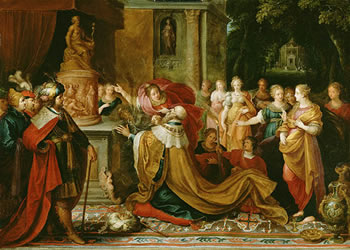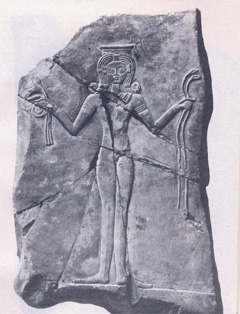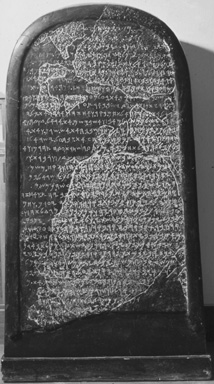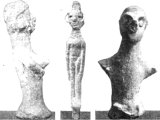King Solomon, Politics and Power
For Sunday August 20, 2006
Lectionary Readings (Revised Common Lectionary, Year B) hotlink: )
1 Kings 2:10–12; 3:3–14 or Proverbs 9:1–6
Psalm 111 or Psalm 34:9–14
Ephesians 5:15–20
John 6:51–58
 |
Solomon's idolatry, Frans Francken II, Flemish, 1622. |
In April of 2004, pastor and scholar Greg Boyd preached a controversial series of six sermons called "The Cross and the Sword" at his 5,000 member Woodland Hills Church in Saint Paul, Minnesota. As he explains in his new book that grew out of these sermons, The Myth of a Christian Nation; How the Quest for Political Power is Destroying the Church (2006), in those months preceding the elections, Boyd wanted to warn his congregation about "nationalistic and political ideology," of identifying the Christian Gospel with any political point of view, of cherished but badly mistaken convictions like the belief that America is a Christian nation, or that believers should "take back the nation for God." No, Boyd preached, "the path through politics is not the road to God." Many parishioners thanked Boyd for his wisdom and boldness, but others were not so enamored. About a thousand people left the congregation.
It would have been far easier for Boyd to remain silent, of course. The relationship between religion and politics is complex, controversial, divisive, ambiguous, and often full of compromise. Thus the caution never to mix politics and religion. But that's precisely what the Old Testament reading about King Solomon for this week does. Boyd did not preach that believers should avoid politics, or that Christian convictions have no political implications. As this week's Old Testament reading about Solomon demonstrates, there is a prophetic critique of political power that avoids both the safety of silence and ideological fervor.
 |
Egyptian Goddess Hathor (Canaanite Ashtoreth), stone plaque, c. 1250 BCE, British Museum. |
A simple reading of the story of Solomon in particular (1 Kings 1-11), and of the larger context of the six books of 1–2 Samuel, 1–2 Kings, and 1–2 Chronicles, reveals what a friend of mine once called a brilliant glimpse of the obvious—that at least this portion of the Bible is purely and profoundly political. This week's text relates the transition of power from David to Solomon. Further on we read about Israel's role in the geo-politics of Assyria, Edom, Egypt, Moab and Tyre. There are wars, alliances made by marriage, famines, conspiracies, assassinations, economic trade agreements, and foreign policy negotiations. We read about Solomon's massive building projects, the temple at Jerusalem and his royal palace, both of which were built by slave labor conscripted from resident aliens, and of his incomparable wealth. Some of this material makes for dreadfully boring reading because its sources clearly include government archives, bureaucratic invoices, and court records. In my Bible, this political narrative runs for 250 pages and covers 400 years, from Israel's first king David until its exile by Babylon in 586 BC.
So, while some people counsel the safety of silence when it comes to politics, you could not make that case from the Bible. God's revelation of himself shows that he cares deeply about and somehow interacts with human politics, governments, and statecraft. In the New Testament, too, we encounter Jesus's announcement of an alternate reign or kingdom that is redolent with inherently political consequences. Jesus renounced violence and blessed peacemakers, he favored poor people and warned the rich, he embraced ethnic outsiders and infuriated smug insiders, he partied with moral failures and flaunted religious conventions.
I find it frustrating to go to church and hear little or nothing from the pulpit about how as a Christian I might parse political developments like 3,000 Iraqi citizens slaughtered every month, that North Korea tested missiles, that Hezbollah would destroy Israel if it could, or that most people in Africa live in dreadful poverty. The story of Solomon reminds us of what the French sociologist Jacques Ellul said in his book The Politics of God and the Politics of Man: "The Bible shows us that the church is not just a spiritual matter, that politics is not just simply a human action of no concern to us. It may be that politics is the kingdom of the devil, but this certainly concerns us as Christians."
 |
Moabite Stela of King Mesha exalting the Moabite god Chemosh, c. 840 BCE. |
Other Christians make the opposite mistake. Instead of avoidance and silence they reduce the meaning of faith to little more than politics. In general, liberal Christians identify with Democrats and conservative believers with Republicans. A closer inspection of the Solomon story shows why both alliances are equally mistaken. We do read about Solomon's wisdom, and his earnest prayer when he dedicated the temple. But his story ends with personal corruption to pagan gods and goddesses (Ashtoreth, Molech, Chemosh) whose practices included child sacrifice, and national catastrophe when his son Rehoboam provoked a civil war that ripped the country apart and that only ended with defeat by the global powers Assyria (in 722 BC) and then Babylon (in 586 BC).
In Solomon's case, religious sincerity was no guarantee of political or personal wisdom. In the end, the Biblical revelation about Solomon is tragic regarding political power. The larger Bible context is even more so. The political panorama of 1–2 Kings includes the reigns of forty kings and one queen (Athaliah in 2 Kings 11) in the 400 hundred years from the death of David to Israel's exile to Babylon in 586 BC. Only two kings received unqualified approval by the narrator (Hezekiah in 2 Kings 18:3 and Josiah in 22:2). With monotonous regularity, over thirty times he renders the ominous judgment that a king "did evil in the eyes of the Lord." Instead of the glorification of political power or nationalistic celebration, his history of politics is unremittingly negative (in keeping with Samuel's dire warning in 1 Samuel 8). His narrative conveys a radical relativization, subversion and even judgment of Israel's politics, a remarkable feat when you consider that these are Israel's sacred writings and that such negative conclusions about royal power must have put the author at some risk.
 |
Statuettes of the goddess Ashtoreth. |
Jesus insisted that the kingdom he inaugurated is "not of this world" (John 18:36). Boyd notes that almost all human kingdoms and powers go to any lengths to exercise power over others (political, economic, military, cultural), whereas the reign of God that Jesus taught and modeled flourishes—counter-intuitively and paradoxically—by what he calls "power under" others, a radically counter-cultural mandate for an alternative ordering of human affairs. He did not allow himself to be co-opted by any political ideology or party of the day, and did not engage in any political action. From his birth when King Herod tried to murder him until his death at the hands of Pilate, Jesus threatened the political powers of his day, not because he sought to control what they controlled but because "he undercut its pretensions and claims to supremacy" (Wills). If Jesus is Lord, then Caesar is not Lord. Thus, concludes Garry Wills, Jesus did not acquiesce in silence before political power, he confronted it, so that "the program of Jesus's reign can be seen as a systematic antipolitics" (What Jesus Meant).
For further reflection:
* What has been your experience of the separation or mixture of politics and religion?
* How do the politics of both the left and the right try to co-opt faith?
* In what sense did Jesus advocate a "systematic antipolitics" (Wills)?
* What do you make of Israel's sacred narrative that speaks so negatively about 39 of 41 of its leaders?
* See Greg Boyd, The Myth of a Christian Nation; How the Quest for Political Power is Destroying the Church (2006).





